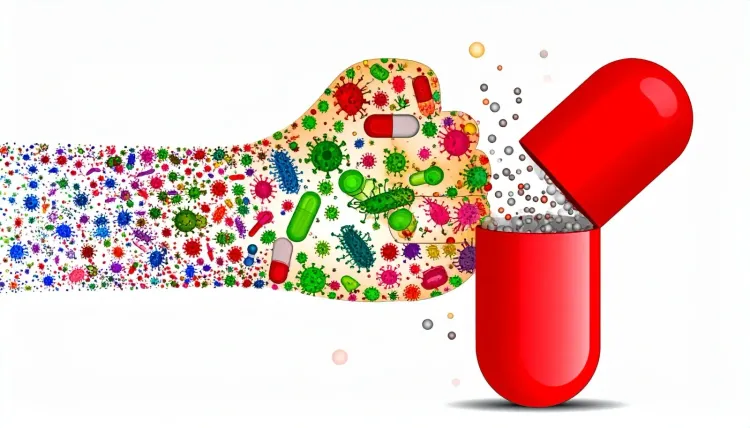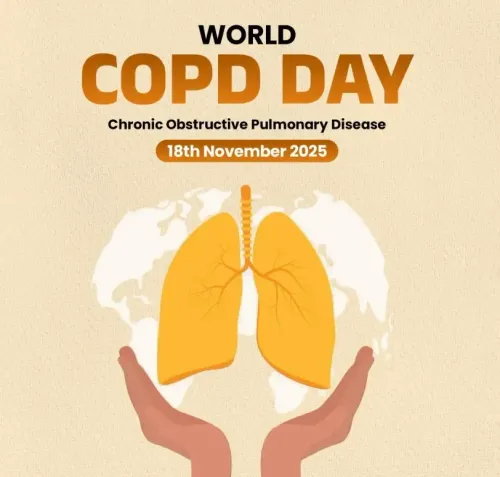Could Severe Malnourishment in Children Under Five Lead to Increased Antibiotic Resistance?

Synopsis
Key Takeaways
- Severe malnourishment increases the risk of antibiotic-resistant infections in children.
- Globally, 45 million children under five suffer from severe malnourishment.
- Approximately 76% of affected children carry bacteria with ESBL genes.
- Over 25% carry carbapenemase genes, leading to treatment challenges.
- Urgent measures for infection control in hospitals are essential.
New Delhi, Aug 1 (NationPress) A recent study reveals that children under five suffering from severe malnourishment face an alarming risk of encountering antimicrobial resistant bacteria. It is estimated that globally, around 45 million children in this age group are severely malnourished, putting them at a heightened risk of life-threatening infections such as tuberculosis and sepsis due to compromised immune systems.
Conducted by researchers at the Ineos Oxford Institute for Antimicrobial Research (IOI), the study highlights the rapid spread of antimicrobial-resistant bacteria among children receiving treatment for severe malnutrition at a hospital in Niger.
Published in Nature Communications, the findings indicate that 76 percent of these children harbored bacteria with extended-spectrum beta-lactamase (ESBL) genes, capable of breaking down many commonly used antibiotics.
Furthermore, approximately 25 percent of the children carried bacteria with carbapenemase genes such as blaNDM, which grants resistance to some of the most potent last-line antibiotics.
“These children are among the most vulnerable in the world, and it is distressing to see them acquiring bacteria that are resistant to life-saving antibiotics,” remarked Dr. Kirsty Sands, Scientific Lead at the Ineos Oxford Institute for Antimicrobial Research.
She added, “While our study focused on one treatment facility in Niger, similar situations could be occurring in numerous hospitals worldwide. As antimicrobial resistance (AMR) escalates globally, ongoing humanitarian crises like wars and climate change are worsening malnutrition, resulting in overcrowded treatment centers.”
Antibiotics, essential for treating infections, are becoming less effective due to AMR, where bacteria, fungi, and parasites develop resistance to medications.
In collaboration with Médecins Sans Frontières (Doctors Without Borders), researchers examined over 3,000 rectal swabs from 1,371 children under five being treated for severe malnutrition between 2016 and 2017.
Alarmingly, nearly 70 percent of children who initially did not carry carbapenem-resistant bacteria were found to have them by discharge. Carbapenems are vital last-resort antibiotics used when other treatments fail.
Additionally, over 10 percent of the children were found to carry E. coli ST167 strains with the blaNDM gene, which poses a significant threat by limiting treatment options for infections caused by these bacteria.
The study underscores the urgent need for prioritizing infection prevention and control measures in hospitals to safeguard the most vulnerable patients.









